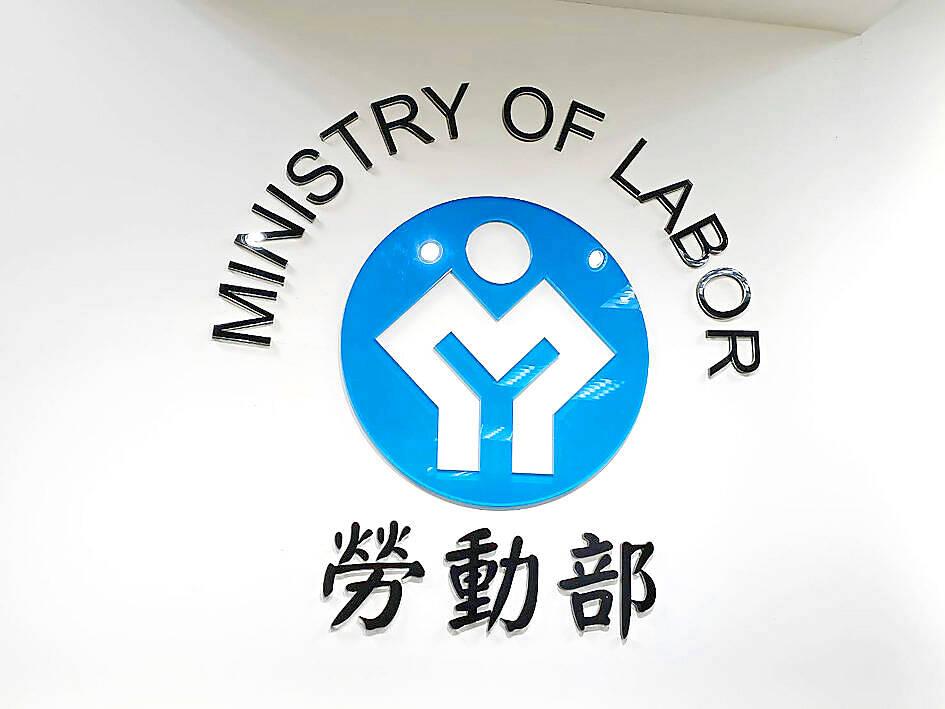Migrant workers earned an average of NT$33,000 per month last year in the construction and industrial sectors, and NT$24,000 for domestic care work, the Ministry of Labor said in its annual migrant worker survey today.
The survey was conducted in July and August last year, receiving 8,554 responses — 4,538 from businesses and 4,016 from household employers.
The NT$33,000 monthly salary for those in industry or construction was an increase of NT$2,000 over the previous year, the ministry report said.

Photo: Lee Chin-hui, Taipei Times
Those who worked in the same position for a full year saw an average of NT$15,000 in additional bonuses, such as holiday pay and performance incentives, it said.
For construction and industrial laborers, the average number of days off in June was 11, an increase of 1.9 compared with the year before, it said.
Average monthly working hours stood at 179.1, a 13.3-hour decrease compared to 2023, of which 152.2 were regular hours and 26.9 were billed as overtime, it added.
Among employers, 39.7 percent reported issues, with the language barrier being the most common, followed by “communication issues” being the second-most common, the report said.
Other complaints such as “poor attitude and discipline” and “workers going missing” were reported by more than 10 percent of employers.
For domestic care workers, the average monthly salary of NT$24,000 was a NT$1,000 increase in both regular pay and overtime wages compared with 2023, although these results are in part due to June having an extra Sunday compared to the previous June, the ministry said.
Domestic care workers averaged 10.3 hours daily, with 57 percent having days off, while 36.4 percent had one day off per month and 13 percent had two to three days off, it said.
For households employing care workers, 89 percent reported alternative care plans for the caregiver’s days off, of whom 45 percent expressed interest in applying for subsidies for alternative care plans, it said.
The primary reason that caregivers did not have contracts renewed was “economic burden,” followed by scheduling conflicts, the report said.
Those who reported issues saw the language barrier as the most common problem, followed by “excessive phone use and chatting,” “communication issues” “and “poor attitude and discipline,” it added.

The Coast Guard Administration (CGA) and Chunghwa Telecom yesterday confirmed that an international undersea cable near Keelung Harbor had been cut by a Chinese ship, the Shunxin-39, a freighter registered in Cameroon. Chunghwa Telecom said the cable had its own backup equipment, and the incident would not affect telecommunications within Taiwan. The CGA said it dispatched a ship under its first fleet after receiving word of the incident and located the Shunxin-39 7 nautical miles (13km) north of Yehliu (野柳) at about 4:40pm on Friday. The CGA demanded that the Shunxin-39 return to seas closer to Keelung Harbor for investigation over the

National Kaohsiung University of Science and Technology (NKUST) yesterday promised it would increase oversight of use of Chinese in course materials, following a social media outcry over instances of simplified Chinese characters being used, including in a final exam. People on Threads wrote that simplified Chinese characters were used on a final exam and in a textbook for a translation course at the university, while the business card of a professor bore the words: “Taiwan Province, China.” Photographs of the exam, the textbook and the business card were posted with the comments. NKUST said that other members of the faculty did not see

The Taipei City Government yesterday said contractors organizing its New Year’s Eve celebrations would be held responsible after a jumbo screen played a Beijing-ran television channel near the event’s end. An image showing China Central Television (CCTV) Channel 3 being displayed was posted on the social media platform Threads, sparking an outcry on the Internet over Beijing’s alleged political infiltration of the municipal government. A Taipei Department of Information and Tourism spokesman said event workers had made a “grave mistake” and that the Television Broadcasts Satellite (TVBS) group had the contract to operate the screens. The city would apply contractual penalties on TVBS

An apartment building in New Taipei City’s Sanchong District (三重) collapsed last night after a nearby construction project earlier in the day allegedly caused it to tilt. Shortly after work began at 9am on an ongoing excavation of a construction site on Liuzhang Street (六張街), two neighboring apartment buildings tilted and cracked, leading to exterior tiles peeling off, city officials said. The fire department then dispatched personnel to help evacuate 22 residents from nine households. After the incident, the city government first filled the building at No. 190, which appeared to be more badly affected, with water to stabilize the